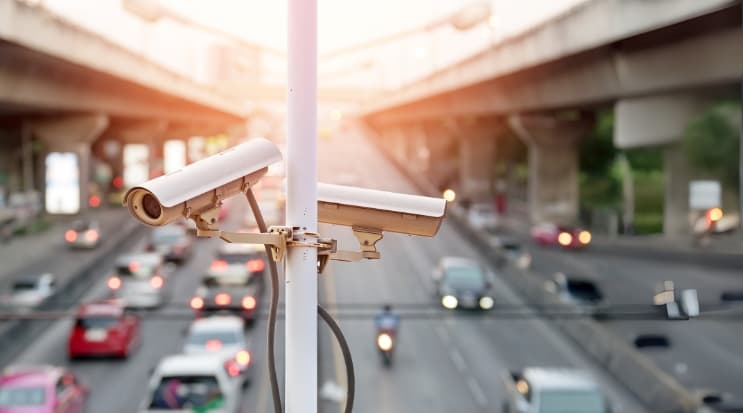
Smart Surveillance and Security: UAE's AI-Driven Law Enforcement Shift
The UAE’s AI-driven law enforcement and surveillance innovations raise concerns over privacy, data protection, and civil liberties
The UAE has been building its legal framework step by step. The Federal Law No. 2 of 2019 (UAE Data Protection Law) laid the groundwork, focusing on consent and transparency. More recently, Federal Decree Law No. 45 of 2021 created a more comprehensive structure specifically for our digital times.
These laws share some similarities with international standards like Europe's GDPR, though with distinct differences. At their core, they emphasize that citizens should know what data is being collected about them and how it's being used. This includes special protections for sensitive information like biometric data—your fingerprints, facial features, and other unique physical characteristics.
AI Officers on Every Corner
Perhaps nowhere is the UAE's technological transformation more visible than in law enforcement. Walk around Dubai today and you might encounter:
-
Patrol cars equipped with facial recognition cameras scanning crowds for persons of interest
-
Smart CCTV systems that don't just record but actively analyze behavior for suspicious activity
-
Robot officers stationed in public areas, ready to assist with basic services
-
Unmanned Smart Police Stations offering 24/7 self-service options
In Sharjah, police vehicles now carry AI-powered tools that can instantly scan faces and license plates, flagging anything suspicious. Meanwhile, Dubai's Smart Police Stations have reduced the need for staffed facilities, streamlining routine interactions with law enforcement.
Behind the scenes, predictive analytics tools comb through vast amounts of data, attempting to forecast where crime might occur and helping commanders allocate resources more efficiently. Traffic management has been revolutionized too, with automated systems detecting violations and scanning license plates without human intervention.
The Promise of Smarter Security
For government officials and many citizens, these advancements represent an exciting leap forward. AI-enhanced policing promises faster identification of threats and quicker response times when seconds matter. By automating routine tasks, it frees human officers to focus on more complex issues that require a personal touch.
The technology also offers something humans cannot—continuous, 24/7 vigilance without fatigue. Evidence collection becomes more objective with AI-logged data supporting investigations. And perhaps most appealing to leadership, these innovations bolster the UAE's image as a global technology pioneer, supporting broader national ambitions.
When Innovation Meets Privacy
Yet for all its promise, this AI revolution raises profound questions about privacy and civil liberties. Technical concerns abound: What happens when an AI system misidentifies someone as a criminal? Research shows facial recognition systems often have higher error rates with certain demographic groups, potentially leading to discriminatory outcomes.
There's also the risk of overdependence on technology. What happens when officers begin to trust the algorithms more than their own judgment? And what about system vulnerabilities—could sensitive surveillance data be compromised by hackers?
For ordinary citizens, transparency remains a major concern. Many people simply don't know when, where, or why they're being monitored. This knowledge gap can erode trust in institutions and create a pervasive feeling of being watched, potentially changing how people behave in public spaces.
The psychological impact shouldn't be underestimated. Constant surveillance can affect mental well-being and even freedom of expression. When you know advanced cameras might be tracking your every move, might you think twice before attending a public gathering or expressing an unpopular opinion?
Consider some of the UAE's most cutting-edge tools: brain scanners for lie detection and facial recognition cameras with a range exceeding one kilometer. While undeniably innovative, these technologies fundamentally alter the relationship between citizens and the state in ways we're only beginning to understand.
Finding a Path Forward
Recognizing these challenges, the UAE is taking steps to ensure more balanced implementation. Law enforcement agencies are developing clearer protocols for data access and usage, investing in explainable AI models that provide transparency into decision-making processes, and creating hybrid systems that combine AI insights with human judgment.
For citizen protection, efforts include limiting intensive surveillance to high-risk zones, implementing better informed consent procedures, and establishing independent oversight bodies to handle complaints when things go wrong. Public education campaigns aim to help citizens understand their rights under UAE data protection laws.
The Road Ahead
The UAE's AI Ethics Guidelines highlight priorities including fairness, transparency, human oversight, and privacy preservation. These principles underpin the National Strategy for Artificial Intelligence 2031, which envisions global leadership paired with responsible implementation.
Public opinion continues to shape this journey, with surveys showing 77% of UAE residents concerned about potential unethical uses of AI. This level of awareness is pushing for stronger safeguards and greater transparency as the technology becomes more embedded in daily life.
As the UAE continues this technological transformation, its challenge will be maintaining the delicate balance between security innovation and individual rights. The country's approach to this balance will likely determine not just the success of its AI ambitions, but also the nature of its society in the decades to come.
For any enquiries or information, contact info@thelawreporters.com or call us on +971 52 644 3004. Follow The Law Reporters on WhatsApp Channels